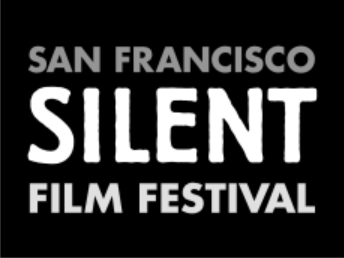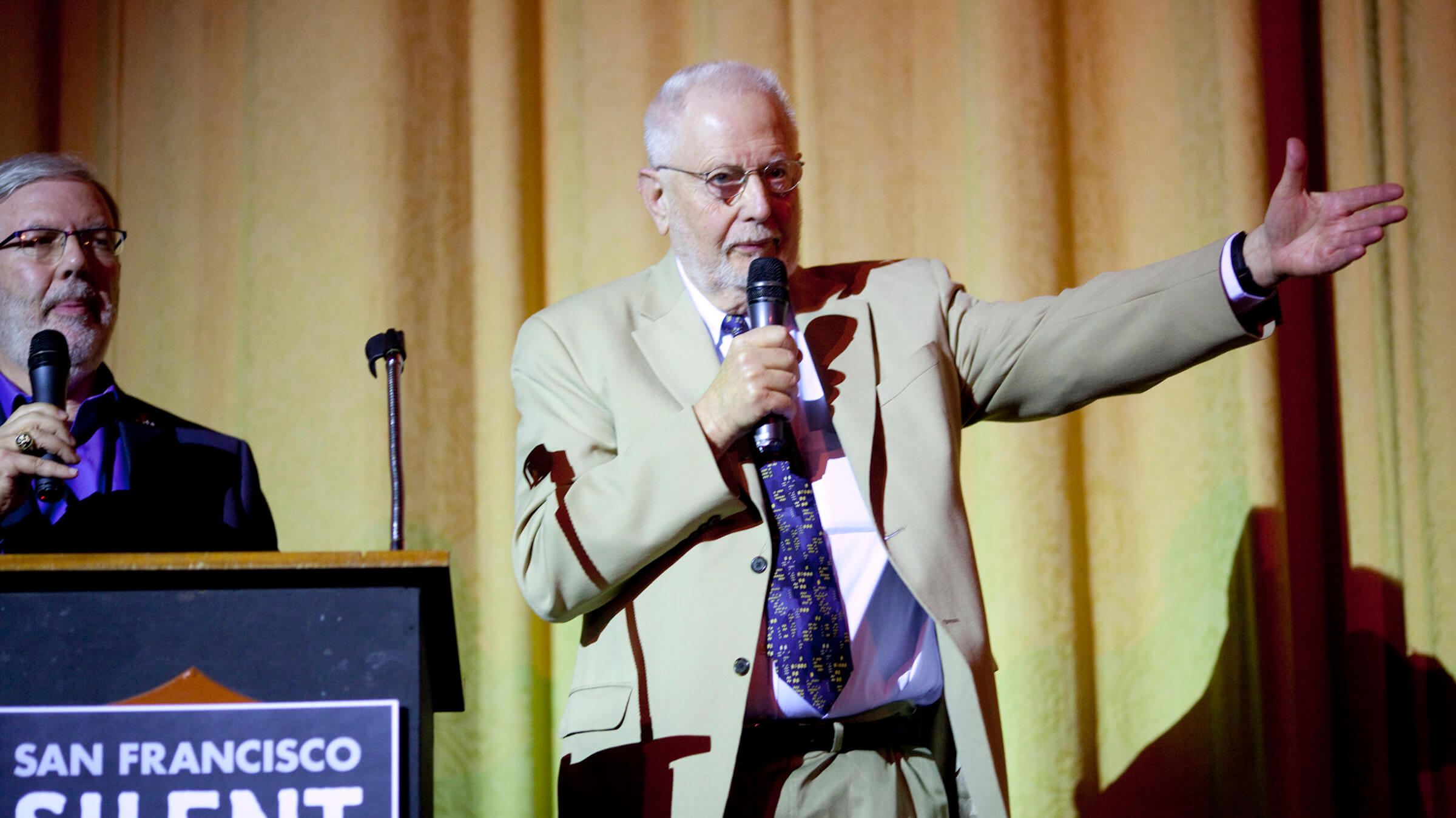The San Francisco Silent Film Festival has lost one of its greatest friends and biggest boosters. Frank Buxton was not only a generous sponsor of this event, along with his wife, Cynthia Sears; he was an enthusiastic attendee who encouraged friends and family to join him at the Castro Theatre every year.
Audience members who saw him introduce screenings over the years may not have realized the pedigree of that genial fellow onstage. My family and I feel blessed to have known him. He was a naturally funny guy who was inordinately proud of his ability to screw his face into a perfect replica of Edgar Bergen’s dummy Mortimer Snerd. How can you not love a man like that?
He was canny enough to throw himself an elaborate eightieth birthday party seven years ago. Friends and family came from far and wide to spend a weekend in his company, sing his praises, and (not so incidentally) screen a Buster Keaton movie. Frank was justly proud of the fact that as a young actor he had shared a stage with Keaton in a summer-stock production of Three Men on a Horse.
He went on to enjoy a formidable career in show business on both sides of the camera. Baby boomers may remember him as the host of the ABC-TV series Discovery in the 1960s. A clean-cut, all-American type, he and cohost Virginia Gibson (one of the brides in Seven Brides for Seven Brothers) were the perfect kid-friendly grownups to introduce young viewers to the wonders of science, travel, and the world at large.
He then created Hot Dog, a memorable weekend TV show that illustrated how everyday objects were made, from baseball bats to … hot dogs. Having worked as a stand-up comic, Frank had good relationships with other comedic talents and put them on camera to riff about the subjects at hand: Woody Allen, Jonathan Winters, and Joanne Worley. This landmark show earned a prestigious Peabody Award.
Woody Allen used Frank as a straight-man interviewer in his memorable trailer for Bananas and then hired him to provide voices for his hilarious spy spoof What’s Up, Tiger Lily? A cheesy Japanese imitation of James Bond films was transformed, through artful English-language dubbing, into the search for a coveted egg-salad recipe. Frank also put his vocal talents to work on the TV cartoon series Batfink (and, much later, Garfield and Friends).
He was one of the founders of Sons of the Desert, the international Laurel and Hardy organization. (That’s how I met him, when I was fourteen years old.) He had a lifelong interest in old-time radio, which led him and his Discovery colleague Bill Owen to write two books, Radio’s Golden Age and The Big Broadcast. He appeared on The Tonight Show and staged a re-creation of the Superman radio program (featuring its original leading man, Bud Collyer) with the enthusiastic participation of Johnny Carson, who also grew up on radio. You can see some of Frank’s appearances on his YouTube channel.
When I was newly married I introduced my wife Alice to Frank on our first trip to Los Angeles, his adopted home. She liked him immediately but observed his bachelor ways and was sure he’d never settle down. That was before he met Cynthia and became the most devoted of husbands, and a pretty swell father to boot.
His career came full circle when he was hired by Garry Marshall as a staff writer on Love, American Style. He spent most of the 1970s working as writer and director on Marshall’s TV hits Happy Days, The Odd Couple, and Mork and Mindy. He instituted the tradition of screening vintage comedy films for his writing team, as reported in TV Guide, and took particular pleasure in directing his old friend Jonathan Winters alongside the dazzling young Robin Williams.
Marshall was loyal to friends and colleagues and, when Frank and Cynthia left L.A. to live on Bainbridge Island near Seattle, he hired Frank to fill small roles in his films Overboard, Frankie and Johnny, and Beaches. Frank never lost the acting bug. Let’s face it: he was a ham and appeared in other film and television projects, including commercials, in later years.
Even in so-called retirement, Frank was never idle. He performed with The Edge, a Seattle improv comedy troupe, and I can testify that his timing and inventiveness were as keen as ever. He seemed as young as anyone on that stage and always made us laugh. He also programmed film series at the Bainbridge Island Museum of Art.
His last days were difficult but even in a weakened state he retained his sense of humor. Just before he lost the ability to communicate, his friends John and Ann Ellis visited him in the hospital. They brought a ukulele and serenaded him with some favorite songs. At the end of the final tune Frank closed his eyes, dropped his hand from his chest and whispered “Rosebud.” He laughed at his own joke along with his friends. A lifelong performer as well as a consummate film buff, he knew how to deliver the perfect exit line.
Frank Buxton always looked on the bright side of life. We would do well to follow his example … showing one of his favorite Buster Keaton movies makes that easy to do, at least for tonight.

